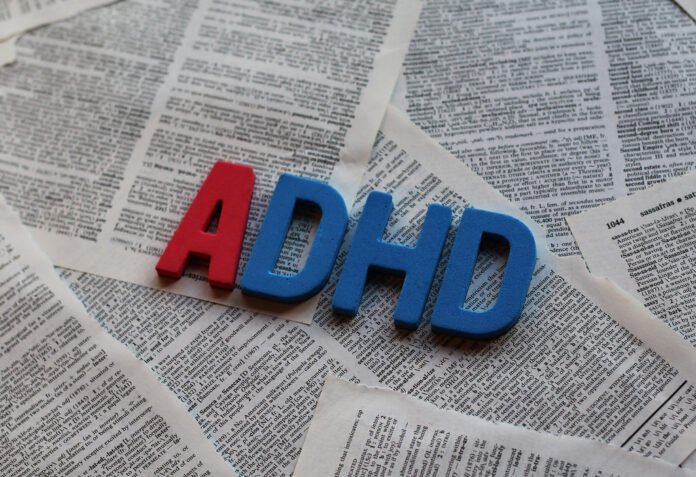The New South Wales government today unveiled landmark reforms that will allow up to 1,000 general practitioners (GPs) to manage attention deficit hyperactivity disorder (ADHD) care for both children and adults. Historically, patients have needed referrals to specialist paediatricians or psychiatrists—often facing long wait times and high costs—to receive assessments, diagnoses, and ongoing prescriptions. The new measures aim to decentralise ADHD services, particularly benefitting families in regional areas who travel extensively or pay thousands for private assessments.
The Current Landscape of ADHD Care
Specialist-Dependent Pathway
Under the existing system, individuals suspecting they have ADHD must first secure an appointment with a specialist. For children, that typically means seeing a paediatrician; adults require consultations with psychiatrists. With public specialist waitlists stretching to 12–18 months in many regions and private fees for diagnostic assessments ranging from $2,000 to $5,000, timely diagnosis and treatment remain beyond reach for many.
Barriers for Rural and Low-Income Families
Regional families face acute challenges. Mid-north coast mother Suzanne Grobke recounted making an eight-hour round trip every three months just to renew her 12-year-old daughter’s ADHD prescription. Other parents describe missing work and incurring accommodation costs, creating financial strain and delaying interventions shown to improve academic and social outcomes.
Details of the New GP-Led Model
Stage 1: Ongoing Prescriptions for Stable Patients
From early 2026, GPs who complete targeted training will be authorised to renew ADHD medications—such as methylphenidate and dexamphetamine—for patients already diagnosed and stabilised on consistent doses. This change will immediately relieve pressure on specialist clinics and reduce patient travel burdens.
Stage 2: Diagnosis and Initiation of Treatment
A smaller cohort of GPs, having undertaken advanced education modules and workshops guided by paediatric and psychiatric specialists, will gain the authority to assess, diagnose, and initiate medication for new ADHD cases. The government anticipates rolling out this phase later in 2026, once training and credentialing are complete.
Training and Accreditation Requirements
NSW Health will fund a structured training program, developed in collaboration with the Royal Australian College of General Practitioners (RACGP). Participating doctors must complete:
- Online Modules: Approximately 13 hours covering ADHD etiology, diagnostic criteria, differential diagnoses, and medication management.
- Specialist-Led Workshops: Hands-on sessions focusing on behavioural interventions, comorbidity assessment, and complex cases.
- Ongoing Clinical Support: Access to a telehealth advice line staffed by paediatricians and psychiatrists for case discussions.
The RACGP’s NSW chair, Dr Rebekah Hoffman, praised the initiative: “Early intervention is vital in ADHD care. Empowering GPs to provide timely diagnosis and treatment will help children and adults manage their symptoms effectively, improving outcomes at school, work, and home.”
Anticipated Benefits and Safeguards
Improved Access and Affordability
By removing the specialist bottleneck, families can access care closer to home and at lower cost. Ongoing prescription through Medicare-rebated GP visits—rather than pricier specialist fees—could save households thousands annually.
Continuity of Care
GPs, who often hold longstanding relationships with patients, are well-placed to monitor ADHD over time, addressing medication side effects, adjusting dosages, and integrating behavioural therapies within a holistic care plan.
Patient Safety Measures
To ensure safe prescribing, the reforms include:
- Clinical Guidelines: Clear protocols on when to refer complex cases back to specialists (e.g., suspected comorbid psychosis or cardiac concerns).
- Prescription Monitoring: Integration with the state’s real-time prescription monitoring system to flag potential misuse.
- Regular Audits: Peer review of participating GPs’ prescribing patterns by specialist panels.
Reactions from Stakeholders
Government Perspective
NSW Premier Chris Minns emphasized the reforms’ social impact: “By training more GPs to diagnose and manage ADHD, we aim to break the cycle of families waiting years for a life-altering diagnosis. These changes will deliver more equitable, timely care across NSW.”
Clinical Community Response
Dr Hoffman of the RACGP: “This will be life-changing for many families, particularly those in rural and remote areas. We applaud the government’s commitment to funding GP education and enhancing primary care capabilities.”
Paediatrician Dr Sarah Nguyen, who sits on the NSW Child Health Advisory Panel, offered cautious optimism: “Empowering GPs can improve service accessibility, but it is essential that robust training and mentoring are in place to maintain diagnostic accuracy and quality of care.”
Family and Patient Voices
Parents like Suzanne Grobke express relief: “Knowing my daughter can get her prescriptions locally without long drives and high fees is a huge weight off our shoulders. I only wish this had been available years ago.”
For many adults who have waited years for a specialist appointment, the reforms represent overdue recognition of adult ADHD. Adult mental health advocate and lawyer Marcus Lee said: “GPs are often the first port of call for mental health concerns. Having them equipped to diagnose adult ADHD will expedite access to support and reduce unnecessary stress.”
Comparison with Other States and Future Directions
National Context
Queensland has permitted GPs to diagnose and prescribe ADHD medications for children since 2017, though adult diagnosis remains specialist-only. In Western Australia, legislation passed earlier this year extends GP prescription powers to patients over age 10. A 2023 Senate inquiry recommended nationwide harmonisation of ADHD prescribing rules—a call supported by the federal government but yet to be enacted.
Potential for Federal Reform
Advocates hope NSW’s model will catalyse federal action. Nationally consistent guidelines would streamline care across state borders, reduce patient confusion, and support telehealth services for remote regions. Federal Minister for Health Mark Butler has signalled openness to dialogue: “We look forward to reviewing NSW’s outcomes and exploring how expanded GP roles can be safely implemented nationwide.”
Conclusion: A Turning Point in ADHD Care
NSW’s reform marks a pivotal shift toward primary-care led ADHD management, aligning clinical practice with patient needs for timely, affordable treatment. By equipping GPs with specialist-level training, the state aims to democratise access to both diagnosis and ongoing medication. While careful monitoring and specialist collaboration remain crucial safeguards, the changes stand to transform the landscape of ADHD care—breaking wait-list bottlenecks and ensuring that a life-altering diagnosis no longer remains out of reach for thousands of Australians
READ MORE: TGA Greenlights Alzheimer’s Drug Donanemab for Early-Stage Patients
